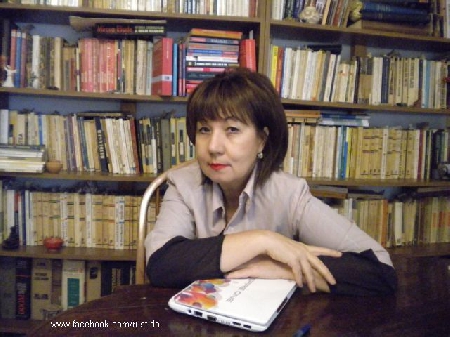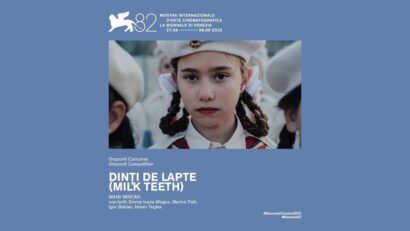Romanian Writer Doina Rusti
Doina Rusti is one of Romanias best-known living writers. Her novels have been translated into several languages and the writer herself has been invited to take part in a great number of international book fairs and events. Furthermore, Doina Rusti made

România Internațional, 30.03.2013, 17:25
“The Phantom at the Mill”, published in 2008, is a comprehensive novel dwelling on Romanian communism; it scooped the Romanian Writers’ Union’s Prize for Fiction, while her 2009 best-seller “Lizoanca, when She Was Eleven” received the Romanian Academy’s “Ion Creanga“ Award. “Lizoanca…” was translated by the Horlemann Verlag Publishers in Berlin. The latter boasts the publication into German of Mo Yan’s works. We recall that Mo Yan is the foremost contemporary Chinese writer, who was awarded the Nobel Prize for Literature in 2012.
Between March 14th and the 17th 2013, Doina Rusti was invited to the Leipzig International Book Fair, where she gave a series of readings and had a number of meetings with her readers.
Doina Rusti: ” Such events do not occur very often in my life. A debate took place at Café Europa — a place at the Fair which usually venues debates with writers coming from central and eastern Europe, where I met Jan Cornelius, who is also the translator of my novel into German. I was lucky; he is a radio producer, a writer with a good rating and a polyglot translator. Then let me also mention an important reading I gave at Fact Theater; people go there and buy tickets to listen to a writer. Such reading sessions occur in the evening with those attending underlining each sentence or butting in to ask questions. In addition, Romania had a stand, which was organized by the Ministry of Culture where autograph signing sessions were held, as well as talks with the German readers or with Romanians living abroad. “
Concurrently, Doina Rusti took part in other events, such as a literary dialogue, the Deutsch Rumaenisches Forum organized in Berlin jointly with the Romanian Embassy. Apart from Doina Rusti, taking part in the Leipzig Book Fair were other Romanian writers such as Gabriela Adamesteanu, Daniel Banulescu or Radu Vancu. The novel’ Lizoanca” will soon be brought out by the Rediviva Publshers in Milan, Italy, and by the Ediciones Traspies, in Granada, Spain. With details on the novel “Lizoanca” here is the author herself.
Doina Rusti: ” Lizoanca” deals with a time span of four decades where in a small community all sorts of compromises occur, eventually leading up to disasters, and gaining their momentum as a little girl is accused of infesting the whole village with syphilis, eventually succeeding in coping with the atrocities the grown ups had been cooking up for her. I started off from a real case, which at that time enjoyed a wide media coverage, but I did not use the real facts; I fictionalized the story. What makes the core of the novel – and I believe that was precisely why the Romanian Academy awarded the novel — is the fact that people forgot their traditions, forgot the significance of a Christian monogram and that’s where everything starts from. I’m speaking about a monogram discovered by Vasile Parvan and dated 230 AD: “Sic tibi terra levis” (May the earth rest lightly on you). The real topic of the novel is the fact that people forgot their traditions.”
Born on February 18, 1959 in Comosteni, a village in southern Romania, Doina Rusti made he debut in 1997. Among her books, worth mentioning are “The Red Little Man”, a novel about the power of loneliness in today’s world and “Zogru”, a fantastic story about a character crossing various historical ages, like a spirit embodying human experiences and aspirations. Also, Doina Rusti has been publishing short fiction, some of her short stories being included in contemporary fiction anthologies and collections.
A specialist in symbology (she is a professor), Doina Rusti has also written a series of non-fiction books, among which “Dimitrie Cantemir’s Bestiary”, “Cultural Print Media”, “The Encyclopedia of Humanistic Culture”, “A Dictionary of Symbols of Mircea Eliade’s Works”.
Young literary critic Paul Cernat wrote that Doina Rusti is, QUOTE, a strong and original prose writer, a rara avis in Romanian Literature after December 1989., UNQUOTE, while writer Nicolaa Breban praises Doina Rusti as a, QUOTE, first –class fiction writer in present-day Romanian literature. UNQUOTE.






























